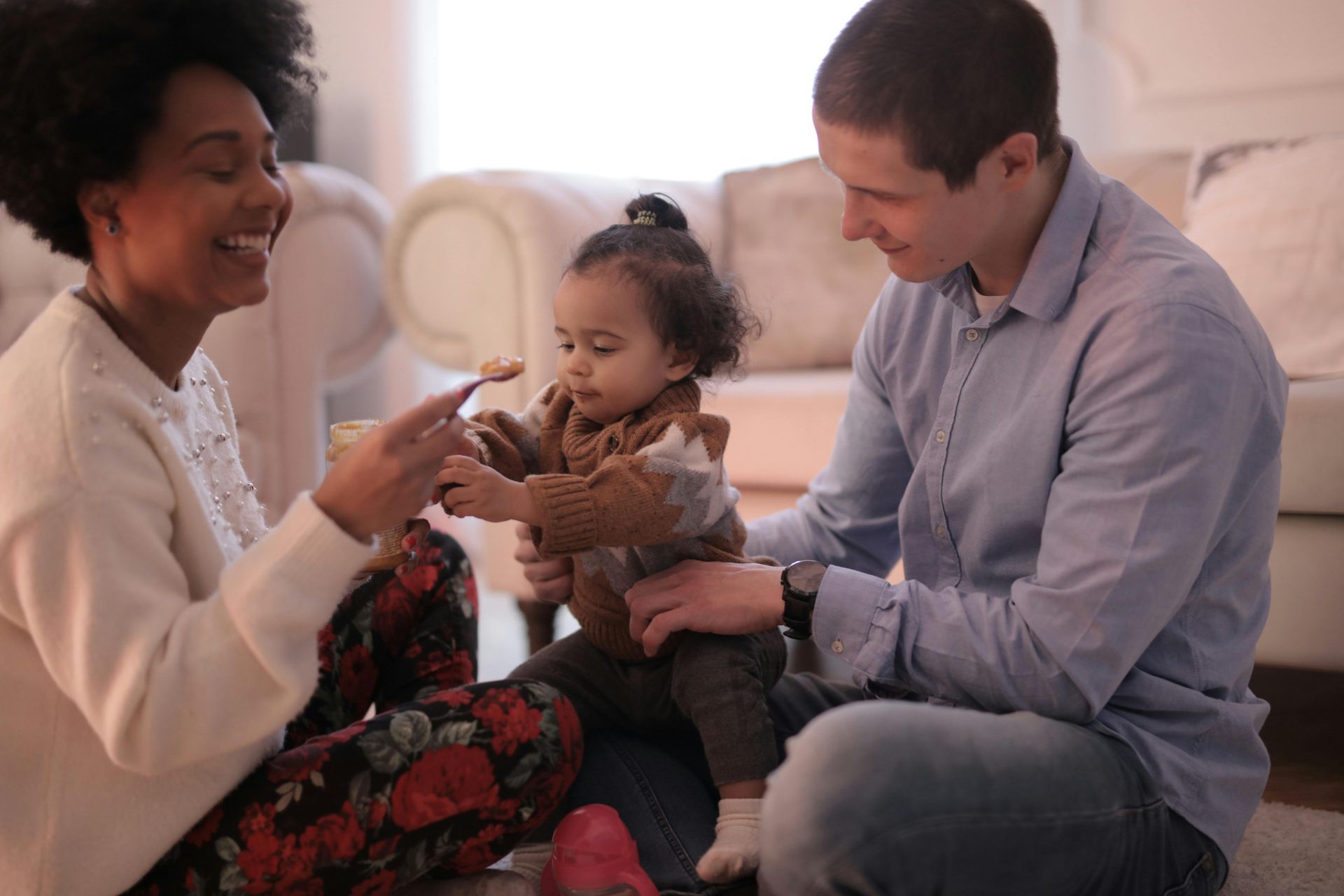Most of us remember growing up with certain role models—and for many of us, that was our parents. We looked up to them in so many ways, and watched closely at how they handled everything from a minor disagreement with a family relative to how they treated the cashier at the corner store down the road. We were right behind them with a sharp eye as they peered at themselves through a mirror and saw the look on their faces when they were happy or sad at their reflection.
Because we know and remember this time in our lives when we were easily impressionable, we should also know to be more careful—at what we do and say and how we act and respond to things. Especially when it comes to our relationship with ourselves. Our behaviors and attitudes towards our bodies can directly affect our children's feelings. They watch and learn from us just as we watched and learned from the role models in our lives. If we have a healthy approach, both mentally and physically, towards our bodies, this is the best way to set our kids up for success.
If we are constantly talking about how big or small, pretty or unpretty we are, our kids will see that and follow suit. They will consider this normal behavior, and incorporate it into their daily lives just as we’ve incorporated it into ours. As Dr. Whitney points out, the way we talk about ourselves and the things
we do are just as, if not more, important as what we tell our kids. “Focus more on teaching our kids how to get the energy they need to fuel their bodies for sports, learning, enjoying playing, etc., instead of focusing on weight/body size/good or bad foods,” she says.
The best thing we can do is lead by example.
Not only are our kids listening to everything we say (even if they choose not to listen to us at times!), but our actions also have a great impact.
If you’re a mom who’s not always the most confident—that’s OK. You are normal! But there are strategies you can incorporate into your daily life to put your best foot forward to boost your child’s confidence just by showing them the ropes.
Here are some of Dr. Whitney’s best strategies for demonstrating positive body image:
1. Pay attention to your self-talk.
We all experience bouts of self-doubt. And we don’t always feel super confident about how we look. If you’re going through a rough time—physically, mentally or emotionally—pay close attention to the things you do and say around your kids. If you’re planning on going on a diet or ramping up your exercise routine, don’t talk about it around them. Better yet, if you are feeling negative or are buying into diet culture, consider talking with a professional so you can start to retrain your brain to think about food and exercise in a healthy way. Put diet-culture social media and traditional media to rest. My friends and I have a pact that when we hear the other person talking negatively about her own body, we say, “Hey, no one talks about my friend that way!” as a reminder to be kind to ourselves and to flip the script on dieting and body shaming.
2. Make regular activities and exercise a family standard.
Get out there and kick the ball with your kids. Ride bikes as a family. Do yoga together. Focus on making movement playful and about using the fuel we put in our bodies well. When we focus on healthy movement first, and model doing it together, it takes the focus off our food choices and shows our kids that a strong, active body is what we value most, not a skinny, perfect one. The goal is to put healthy habits in place from a young age, both in terms of how a child thinks about their body, and how they use it.
3. Watch your kids' media consumption.
If your kids are listening to and watching media that's body-shaming or body-focused, they will internalize those messages. Watch at least one episode of your child's favorite shows with them so you have a full understanding of what they're being exposed to. If they happen to listen to or watch something you realize is not supportive, but you don't realize it until after the fact, use it as an educational opportunity. Talk with your child about what they saw or heard and take the opportunity to explain why you don't agree with focusing on body perfection.
At the end of the day, how we learn to love ourselves is shown through the examples set by our parents—and for many women, by our mom. Try your very best to set the right example.
Written by Jenn Sinrich
Jenn Sinrich is a freelance editor, writer and content strategist located in Boston, Massachusetts. She received her BA in journalism from Northeastern University and has a decade worth of experience working for a myriad of female-focused publications including SELF, Parents, Women's Health, BRIDES, Martha Stewart Weddings and more. When she's not putting pen to paper (or, really, fingers to keyboard), she's enjoying the most precious moments in life with her husband and daughter.














